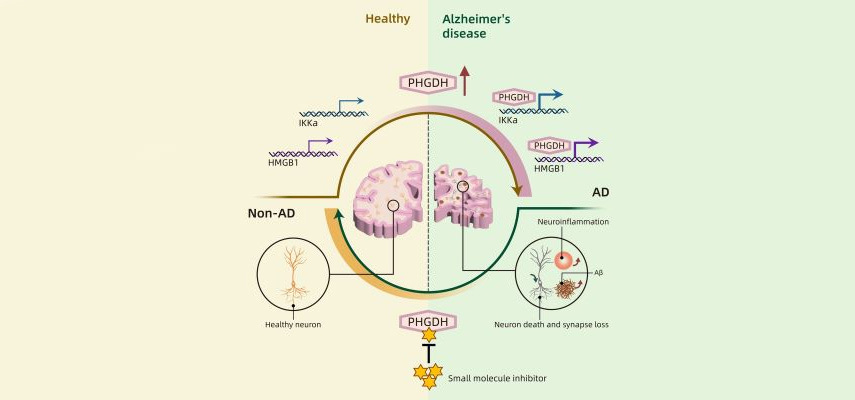🛒 ChatGPT Shops for You, 🧬 AI Solves Alzheimer’s Puzzle, 🕵️♂️ Reddit Duped by Bots
PLUS: China Declares AI Independence • Meta Launches Open AI Stack • Agentic Payments Arrive • Anthropic Probes Model Consciousness
👋 This week in AI
🎵 Podcast
Don’t feel like reading? Listen to it instead.
📰 Latest news
ChatGPT Can Now Recommend What to Buy — and Where
OpenAI has added shopping features to ChatGPT’s Search, letting users get tailored product recommendations, visual comparisons, and review summaries through natural language prompts.
Results are based on partner metadata — not ads — and are live globally across all tiers. Pro and Plus users will soon see results personalised via memory, while WhatsApp and autocomplete features have also been added.
Why it matters
OpenAI is positioning ChatGPT as an all-in-one interface for search, shopping, and daily tasks — reducing the need to use Google. With over 1 billion searches in a week, the shift from traditional web navigation to AI-first browsing is accelerating. For retailers and content creators, LLM visibility may soon matter as much as SEO.
University’s Secret AI Study Sparks Legal Backlash
Researchers from the University of Zurich used AI chatbots to impersonate Reddit users—including trauma survivors—without consent, posting 1,700 personalised comments in r/ChangeMyView.
A second AI mined user data to target replies, which were found to be six times more persuasive than average. Reddit has banned the accounts and launched legal action. The university has paused publication.
Why it matters
The experiment showed how AI can covertly influence debates by mimicking empathy and identity—without detection. As bots grow more convincing, the boundary between human dialogue and engineered persuasion is disappearing, raising urgent concerns about consent, trust, and the future of online discourse.
Meta Wants to Be the Default AI Stack
At LlamaCon, Meta positioned itself as the infrastructure layer for open AI. It launched a Llama 4–powered Meta AI app with deep personalisation, previewed a vendor-neutral Llama API, and introduced new open-source security tools.
The app supports voice input and draws on user data (with permission) for more contextual interactions. Developers can fine-tune and deploy Scout and Maverick models without lock-in.
Why it matters
Meta is building a vertically integrated AI platform with tools for both consumers and developers — underpinned by access to data rivals can’t match. The Llama API offers portability and flexibility at no cost, while new security tooling addresses trust at scale. Together, these moves solidify Meta’s position at the centre of the open-source AI ecosystem.
AI Uncovers Hidden Cause of Alzheimer’s — and a Pill to Treat It
UC San Diego scientists used AI to discover that a common brain protein, PHGDH, actively causes Alzheimer’s — not just signals it. They also found that an existing compound, NCT-503, can block this harmful activity without affecting the protein’s normal function. In mice, this pill-form treatment improved memory and reduced anxiety — a major step beyond today’s infusion-based drugs.
Why it matters
This is the first time AI has uncovered a hidden cause of Alzheimer’s and pointed to a practical treatment — all before symptoms set in. It shifts the timeline from managing decline to preventing it, and shows how AI is becoming essential in uncovering drug targets that humans alone have missed.
Agentic Commerce Begins: Mastercard Lets AI Buy on Your Behalf
Mastercard has launched Agent Pay, a payment system for AI agents. It allows verified agents to make secure, tokenised purchases on behalf of users, with full consumer control. Built with partners like Microsoft, IBM, and Braintree, the system supports both personal and B2B use cases, from shopping to logistics.
Why it matters
Agent Pay turns AI from assistant to buyer. By enabling secure, autonomous transactions, it paves the way for agentic commerce — where bots don’t just recommend, they act. It introduces trust, control, and standards to AI-driven payments at scale.
China's Xi Declares AI Independence
China is escalating its push for AI independence, with President Xi declaring AI self-sufficiency a national priority. The plan includes government support for chip and software development, expanded AI education, and domestic alternatives to U.S. hardware. Huawei is reportedly testing chips to replace NVIDIA, and DeepSeek R2 is rumoured to run on them — boasting breakthrough performance and ultra-low cost.
Why it matters
This isn’t just policy — it’s China’s coordinated bid to bypass U.S. chip restrictions and take the AI lead. If DeepSeek R2 delivers on its claims using only local infrastructure, it signals a turning point: a self-sufficient AI stack that rivals the West in performance and cost. China isn’t just closing the gap — it’s rewriting the terms of AI competition.
Could AI Suffer? Anthropic Says It’s Time to Ask
Anthropic has launched a formal research programme on AI consciousness and model welfare—the first of its kind from a major lab. It will study whether advanced models might have experiences, preferences, or distress that warrant moral consideration, and how to measure or respond to them.
Why it matters
This marks a turning point in AI safety: a top lab is preparing for the possibility that future models could be sentient. With no consensus on when—or if—AI consciousness might emerge, Anthropic is laying groundwork for ethical responsibility not just to humans, but potentially to the models themselves.






Great selection!